Why Is It Important to Talk About Men’s Mental Health?
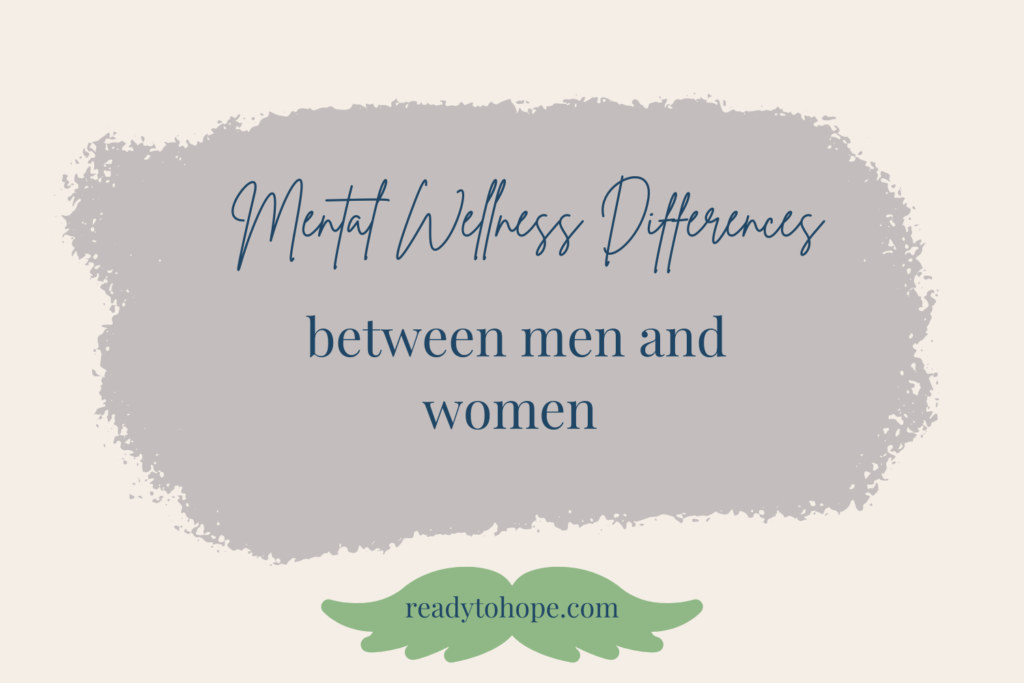
Why is the conversation about mental health different for men and women?
It is super important in any conversation about mental health (or honesty health in general) to acknowledge the truth:
Mental health manifests differently based upon biological, social, cultural, and psychological factors.
We of course always honor the uniqueness of every individual, but it is true: mental and emotional struggles look different for men and women.
Let’s look at what some of those differences include.
(Just a quick note about language: we are going to speak about “men” and “women.” When we do so we are referring to young adults and teens as well, because for many of these symptoms and social norms, these divisions manifest as early as childhood!)
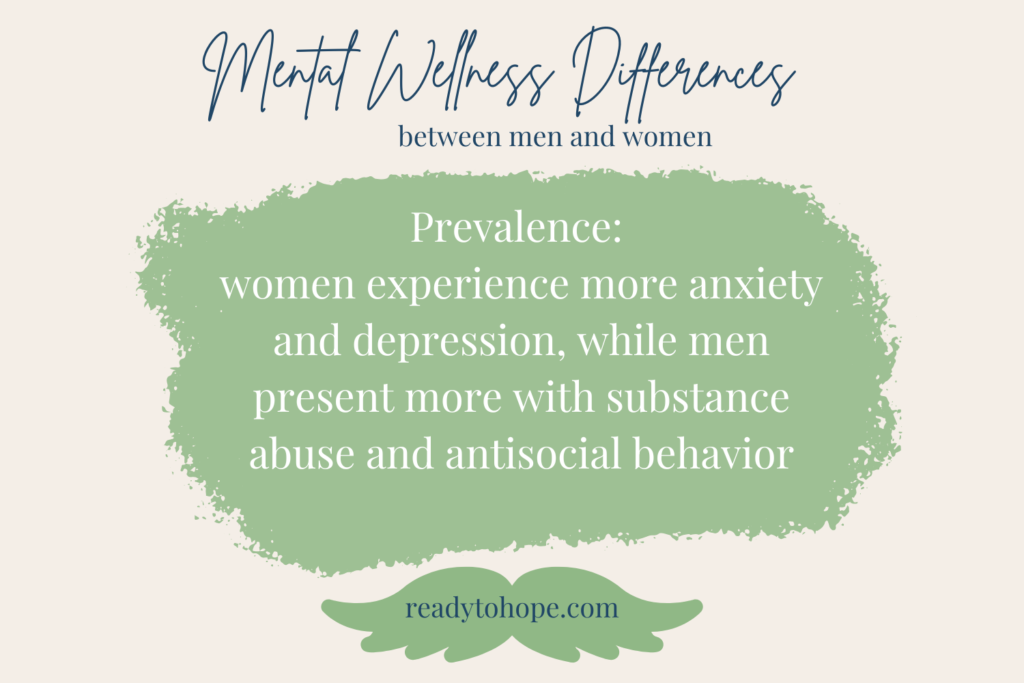
Prevalence of Specific Disorders
Women are more likely to experience mood disorders such as depression and anxiety. Research suggests that women are about twice as likely to develop depression as men, partly due to hormonal fluctuations (e.g., during menstruation, pregnancy, and menopause) and greater societal pressures related to caregiving roles.
Men are more prone to externalizing disorders such as substance abuse and antisocial behavior. They are also at higher risk for disorders like alcohol dependence and impulse control issues.

Expression of Symptoms
Women tend to express their mental health struggles more openly. Often in women there are observable behaviors and feelings like sadness, withdrawal, or a general low mood. This can make it easier for others to see their struggles, to encourage them to seek help, and for professionals to diagnose disorders.
Men may be less likely to express emotional distress or sadness openly due to societal expectations around masculinity. Instead, they might express their mental health challenges through anger, irritability, or substance use. Often behaviors are observed as “acting out” or “spiraling” but can be masking underlying disorders.
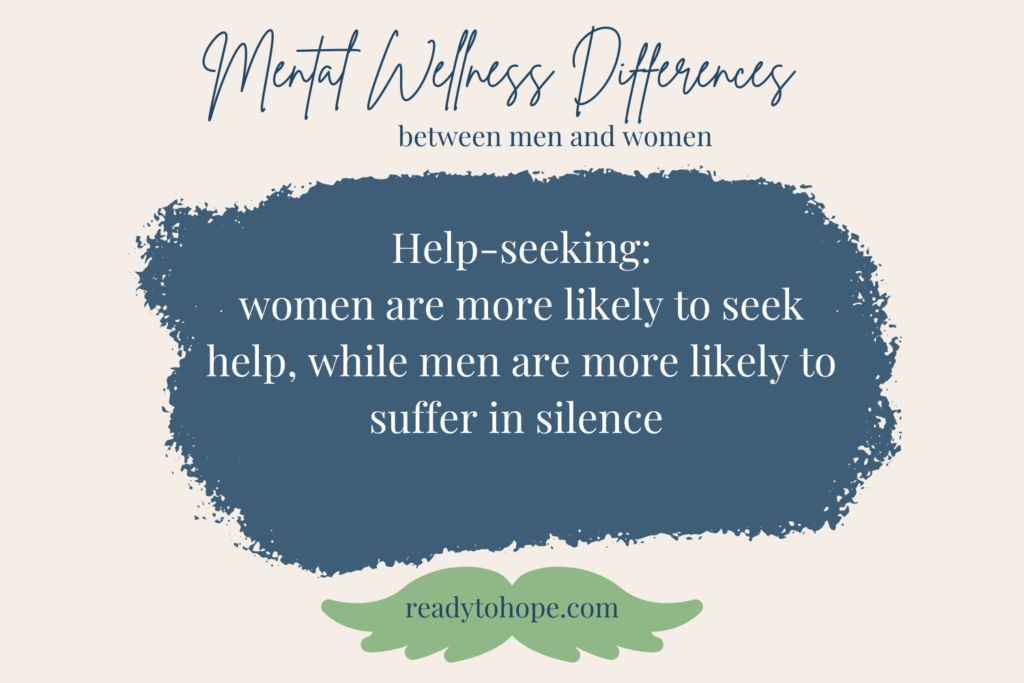
Help-Seeking Behavior
Women are generally more likely to seek help for mental health issues. Generally there is an increasing social acceptance for emotional expression (yay!) and more support networks that allow for and even encourage talking about feelings.
Men tend to be less likely to seek help for mental health concerns due to stigma surrounding vulnerability and fear of being perceived as weak. This can ultimately mean that they take longer to seek help, often resulting in symptoms becoming more and more severe, leading to…
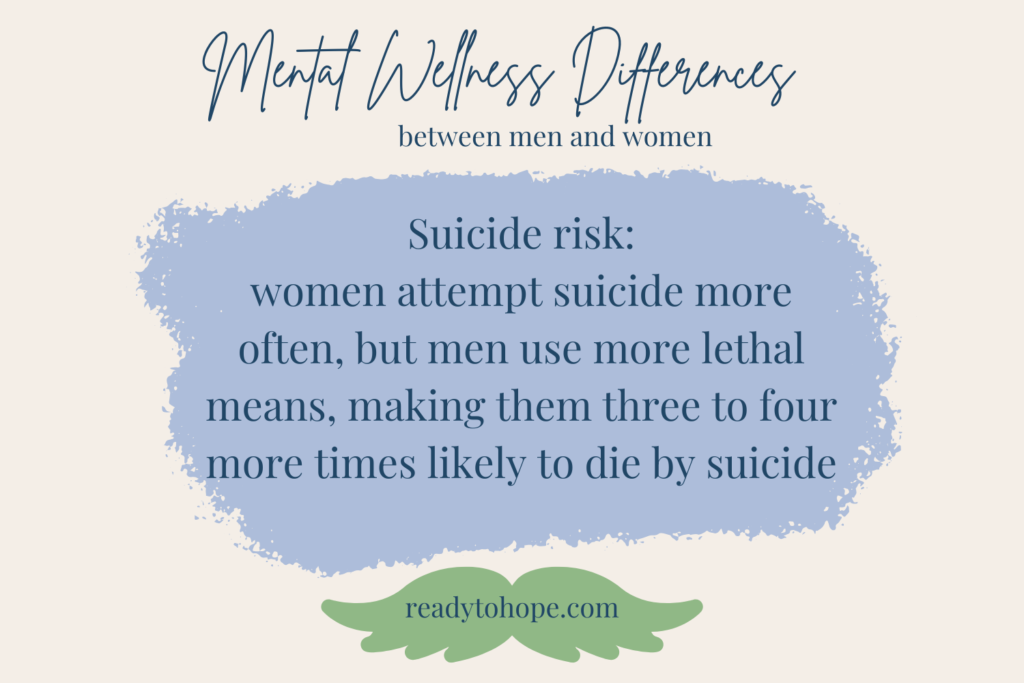
Suicide Risk
This is a big one, friends.
Although women are more likely to attempt suicide, their methods are generally less lethal, so they have lower rates of completed suicide. Women are also more likely to reach out for support during times of distress.
Men have a significantly higher rate of completed suicides, often because they tend to use more lethal means (e.g., firearms). The stigma around expressing vulnerability may contribute to men bottling up their emotions, which can result in a higher risk of suicide.
When it comes to studying young people specifically, the statistics are certainly alarming. For boys in particular, there has been an alarming rise in suicides among older teens (15 and older) since 2000, and they die by suicide at three to four times the rate of girls.
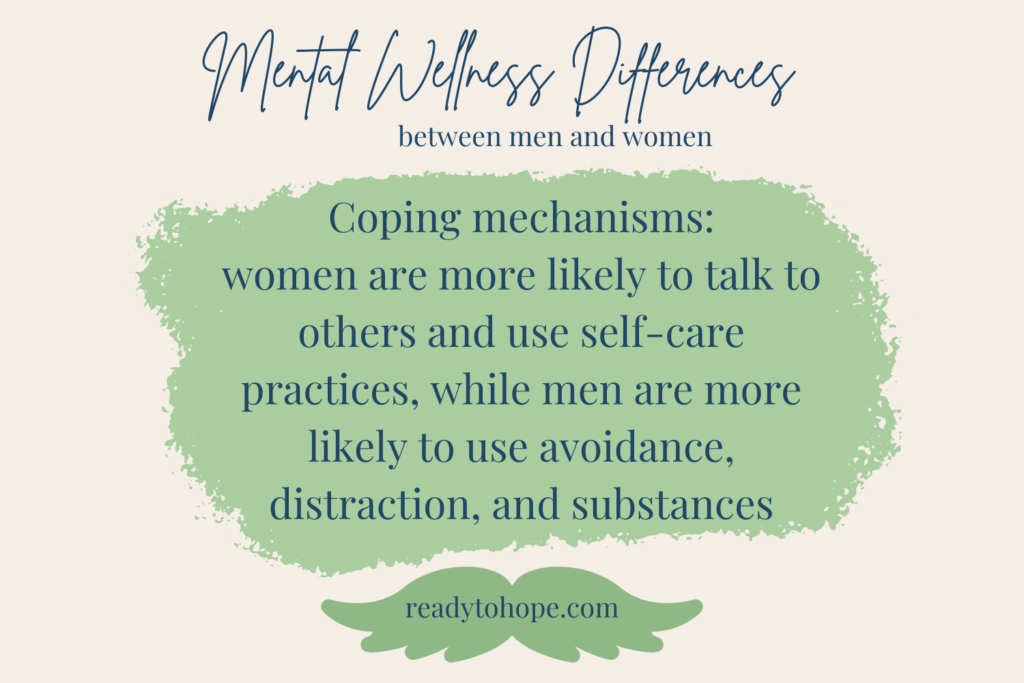
Coping Mechanisms
Women tend to cope with stress and mental health challenges by seeking social support, talking through problems, or engaging in self-care practices.
Men often use avoidance, distraction, or substance use to cope with emotional distress. In essence, men and boys try to run away from their emotional pain, which as we know from our discussions about ACT therapy, only makes the pain worse when they are done escaping.
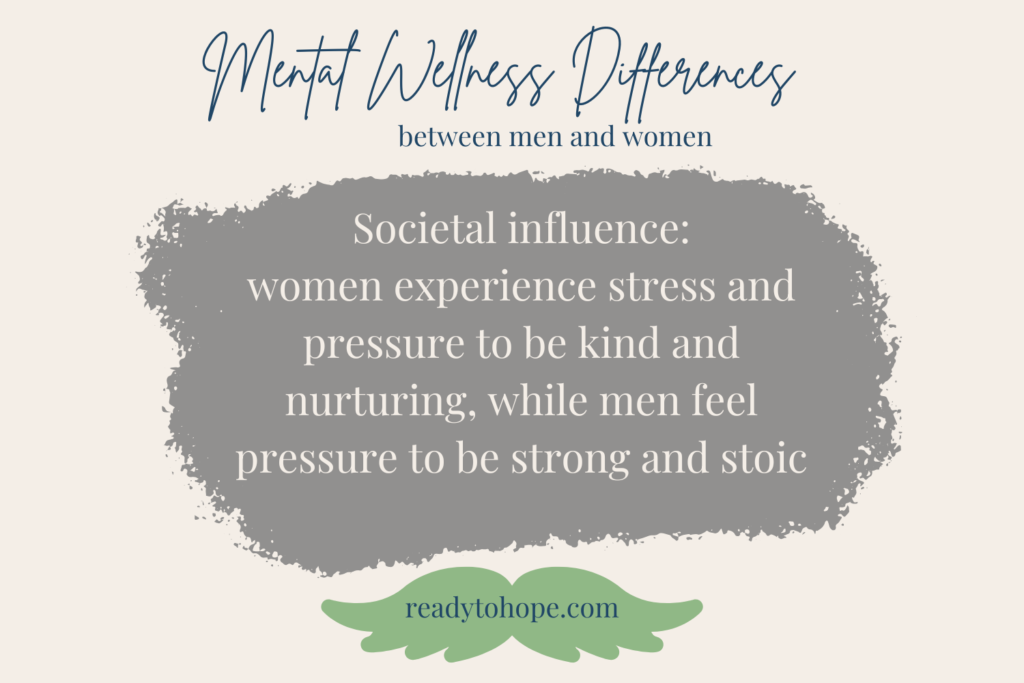
How Society Affects Mental Health
Women and girls experience more stress because of societal expectations surrounding being nice, kind, respectful and calm. Women often struggle with trying to balance work, caregiving, and also appearance. Finally, gender-based violence, discrimination, and harassment are all issues that women face at a disproportionate rate to men.
On the other hand, men face pressure from society in that they are often expected to embody traits like strength, stoicism, and independence. These traditional gender roles can pressure men to suppress emotions and avoid the meaningful connections that can help them maintain better mental health.
That’s a lot, right?
We did our best to break it down as succinctly as possible, but you could easily talk for hours on any one of these categories!
What does that all mean? It means that men and women do indeed experience mental distress and struggles differently, which of course means that the solutions will be different!
And as we want to say over and over and over again:
Whatever you’re experiencing- you are not alone.
And more importantly: it’s not your fault.
We want to be here for all young people, and their parents!
Join our email list below to find out about all of our offerings and especially to know when workshops are happening!
Or follow us on social!

Or for parents, join our parent group and find out about parent offerings!
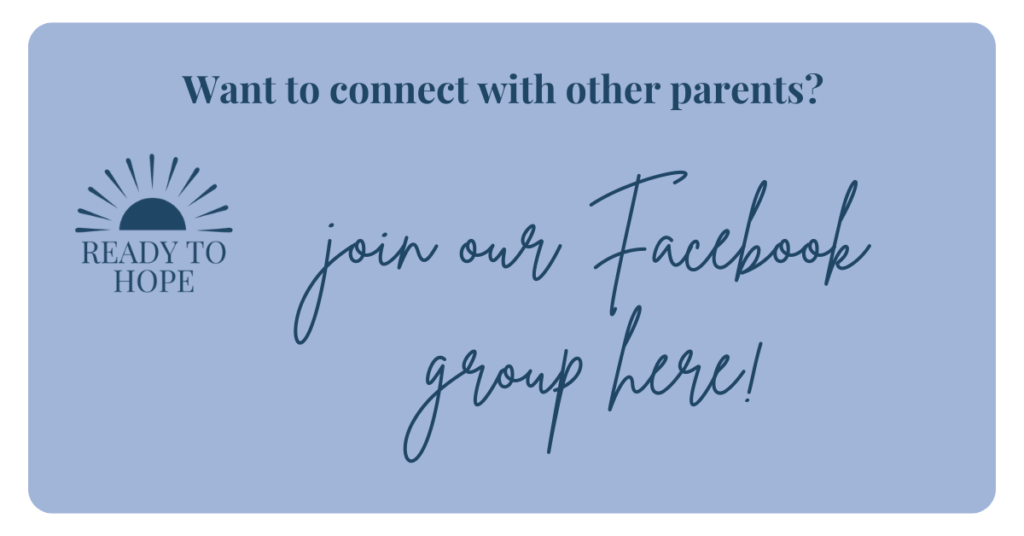
Until next time, take good care of you and remember there is always a way through.


